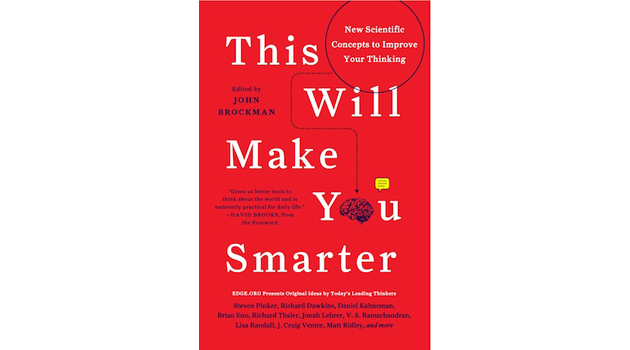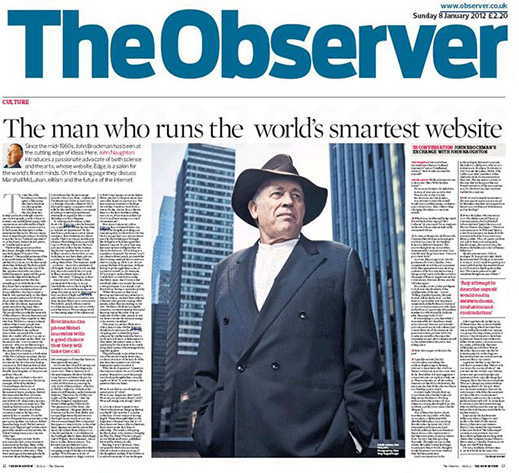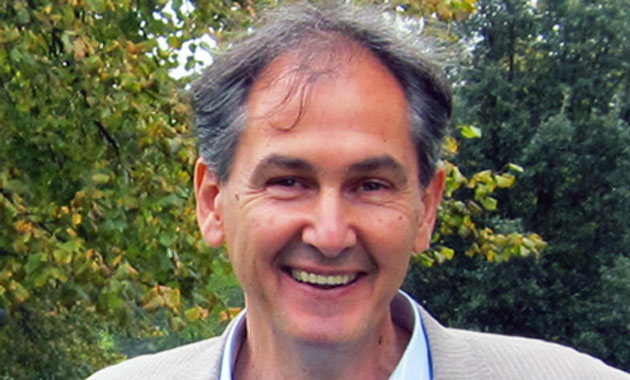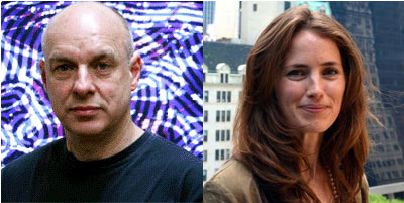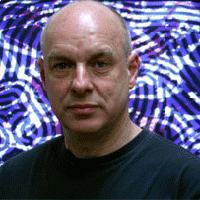"This Will Make You Smarter gives us better tools to think about the world and is eminently practical for life day to day. The people in this book lead some of the hottest fields."
— David Brooks, from the Foreword
"The world's smartest website ... Edge is a salon for the world's finest minds"
— The Guardian
"Edge.org has become an epicenter of bleeding-edge insight across science, technology and beyond, hosting conversations with some of our era's greatest thinkers"
— Atlantic Monthly
....As infinitely fascinating and stimulating as This Will Make You Smarter: New Scientific Concepts to Improve Your Thinking is, its true gift — Brockman’s true gift — is in acting as a potent rupture in the filter bubble of our curiosity, cross-pollinating ideas across a multitude of disciplines to broaden our intellectual comfort zones and, in the process, spark a deeper, richer, more dimensional understanding not only of science, but of life itself.
— Brain Pickings
"The inquiry becomes an a fascinating experience. The pleasure of intelligence is a renewable source of intellectual energy".
— Il Sole 24 Ore
"A winning combination of good writers, good science and serious broader concerns."
—10 Must-Reads in New Nonfiction, Kirkus Reviews (starred review)
THIS WILL MAKE YOU SMARTER: New Scientific Concepts to Improve Your Thinking
Foreward
DAVID BROOKS

Sergey Brin & David Brooks at the Edge Dinner, 2011
DAVID BROOKS'S column on the Op-Ed page of The New York Times started in September 2003. He has been a senior editor at The Weekly Standard, a contributing editor at Newsweek and the Atlantic Monthly, and he is currently a commentator on "The Newshour with Jim Lehrer." He is the author of Bobos In Paradise: The New Upper Class and How They Got There and On Paradise Drive : How We Live Now (And Always Have) in the Future Tense.
David Brooks's Edge Bio Page
FOREWORD
Every era has its intellectual hotspots. We think of the Bloomsbury Group in London during the early twentieth century. We think of the New York intellectuals who wrote for little magazines like Partisan Review in the 1950s. The most influential thinkers in our own era live at the nexus of the cognitive sciences, evolutionary psychology, and information technology. This constellation of thinkers, influenced by people like Daniel Kahneman, Noam Chomsky, E. O. Wilson, Steven Pinker, Steve Jobs, and Sergey Brin, do a great deal to set the intellectual temper of the times. They ask the fundamental questions and shape debates outside of their own disciplines and across the public sphere.
Many of the leaders of this network are in this book. They are lucky enough to be at the head of fast-advancing fields. But they are also lucky enough to have one another. The literary agent and all-purpose intellectual impresario John Brockman gathers members of this network for summits. He arranges symposia and encourages online conversations. Through Edge.org, he has multiplied the talents of everybody involved. Crucially, he has taken scholars out of their intellectual disciplines, encouraging them to interact with people in different fields, to talk with business executives, to talk with the general public.

